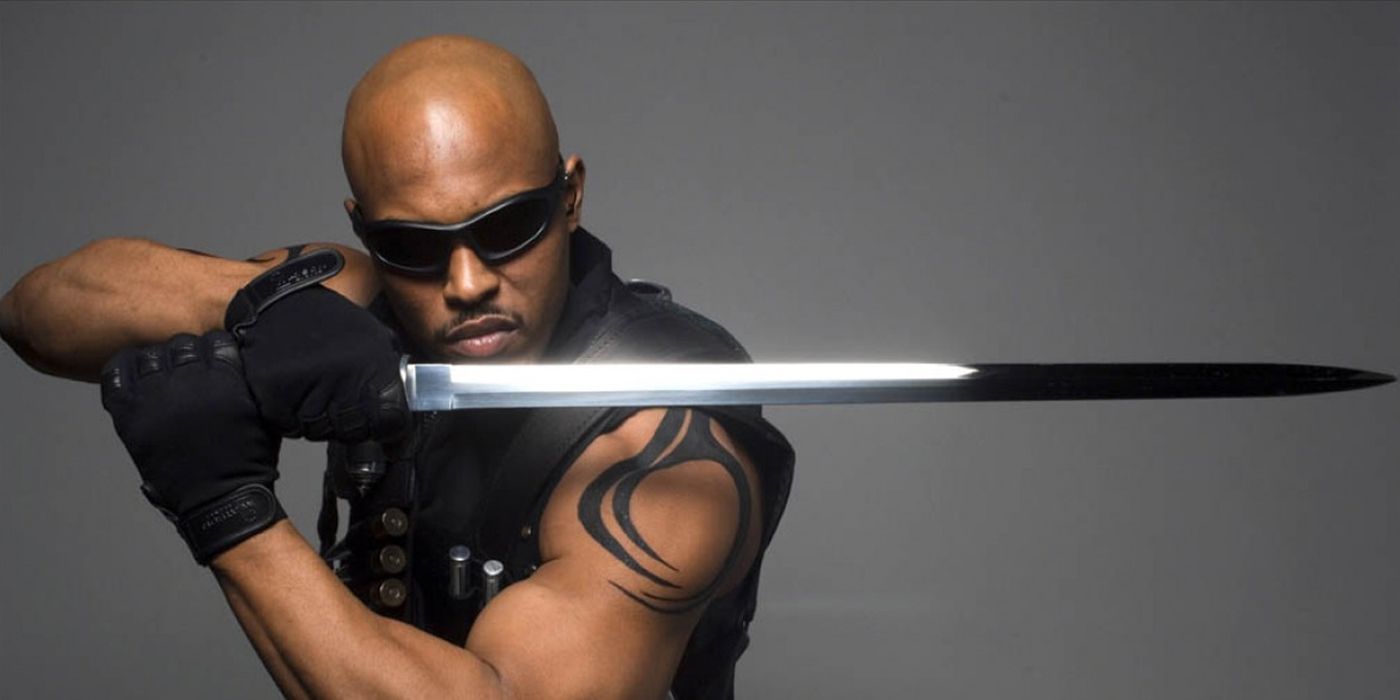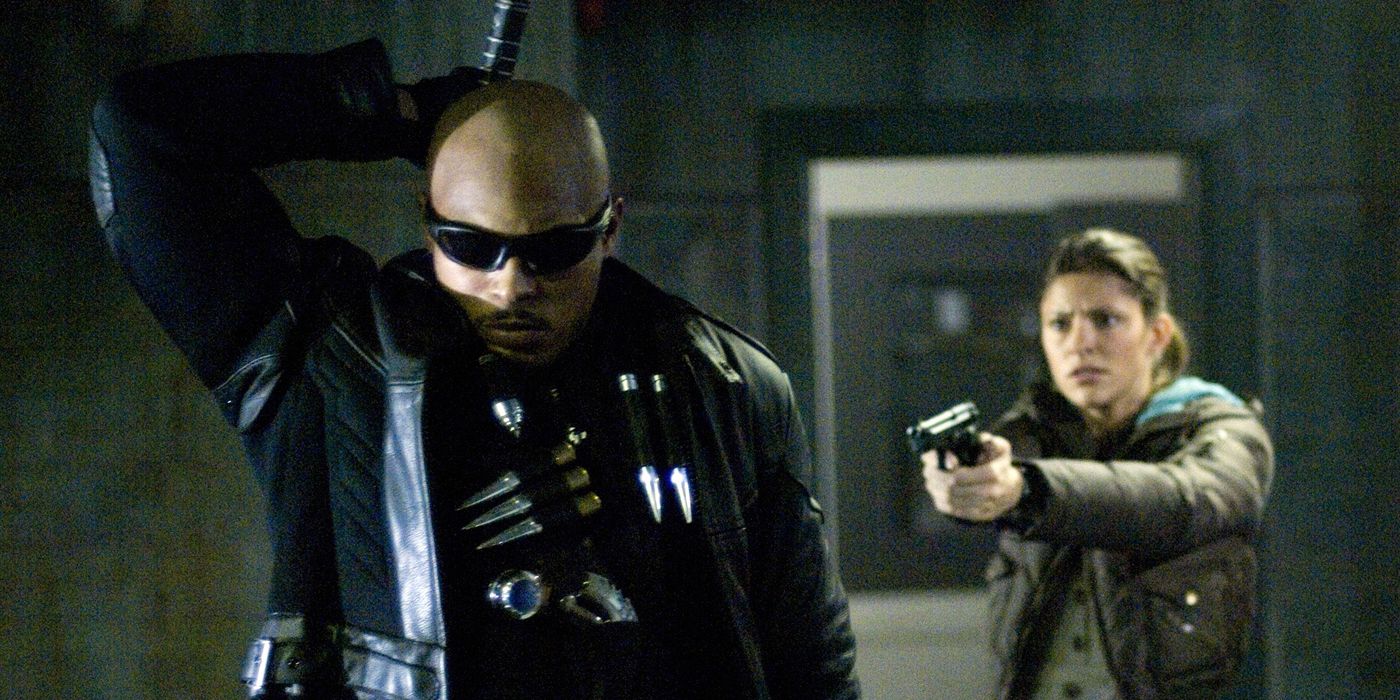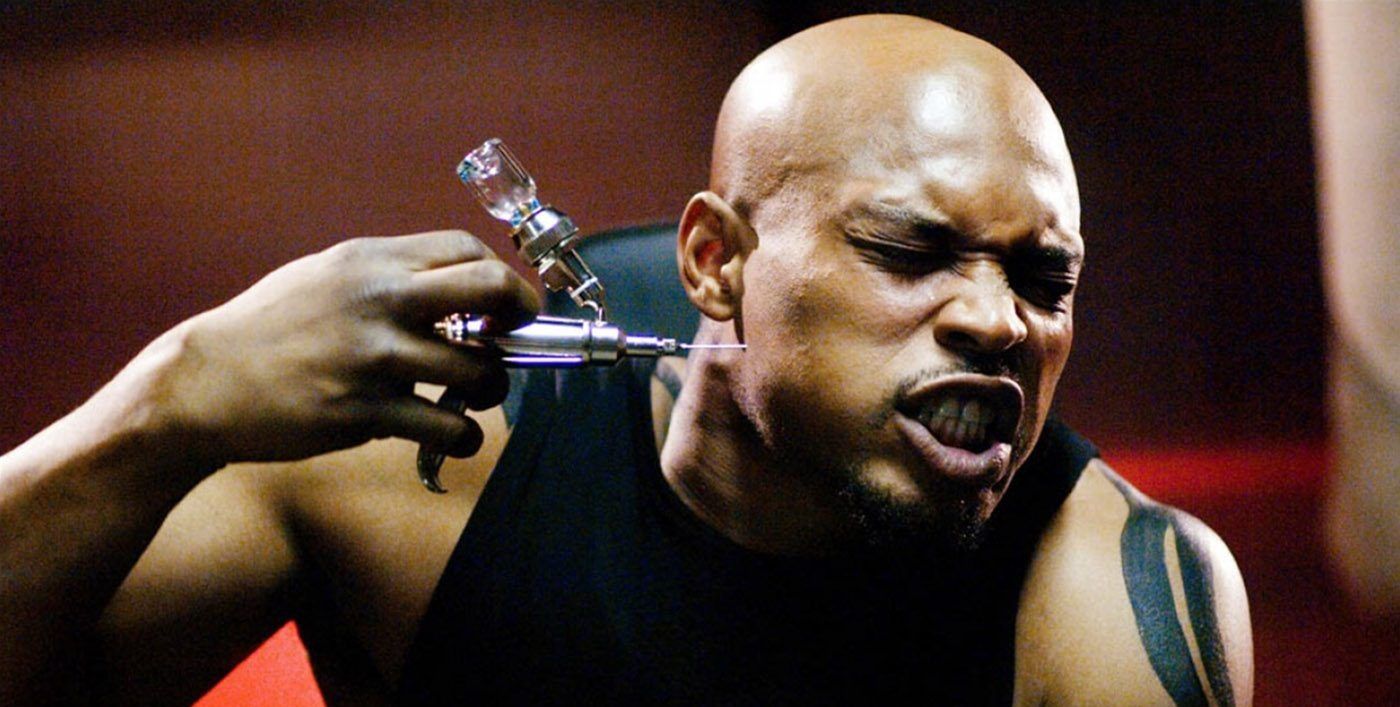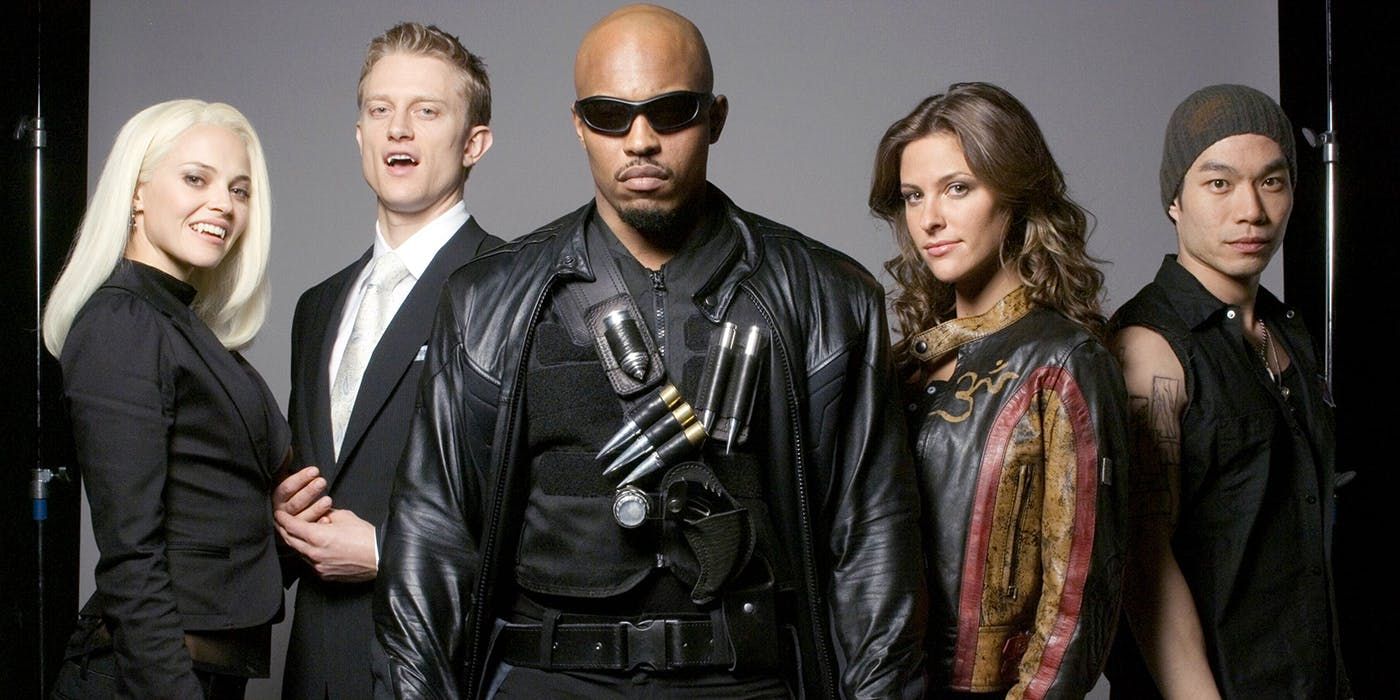The Blade film series was initially very successful, especially given the obscure nature of the character. The negative reception of the third film, however, put the brakes on the franchise, giving way to Blade: The Series on Spike TV. Though it received mixed-at-best reviews, it did have several interesting ideas that hadn't been introduced in the movies.
Marvel has recently announced a new Blade project in the Marvel Cinematic Universe, and they'll definitely want to build on the successes of the first two movies while also setting the new version apart from them. The best thing to do in this case would be to look at what the television series got right (and wrong), and use its unique identity to create a new vision for the character.
Let's Get Real
Though the movies made reference to it, Blade: The Series truly delved into the vampire class system. This involved purebred vampires looking down upon those who were either half-breeds or humans turned into vampires. The racial allegories are rather obvious, especially given the fact that Blade would be outside of this purebred elite.
On top of that, this arrogant class of vampires is typically dressed in high society fashion, visually setting themselves apart from the other characters. Blade is placed further outside of this bubble by virtue of being a Black man, whereas pretty much all of the villainous fanged hordes in the show are extremely pale-faced.
The show also had commentary on the then-current Iraq War, as one of its protagonists, Krista Starr, was a veteran returning from her most recent tour. On top of that, the vampire antagonist Martin Van Sciver is seemingly interested in restoring aged areas of Detroit (spoilers: he's not), where the series is set. This urban decay, and the various social issues that it could be touched on within it, would be more poignant now than ever in a new Blade series or movie.
Given the reception to both Marvel's Black Panther and Luke Cage, as well as DC's Black Lightning, fans and viewers are eager for superhero media to tackle such heady topics as racial inequality and systemic oppression. Given the likely horror bend of Blade, inspiration could also be taken from the recent successes Get Out and Us. Dealing with issues like this would feel organic and set the film apart from prior MCU entries.
Blade Needs Some New Blood
Though it came out before the Twilight craze hit its stride, Blade: The Series was very much a foreshadowing of how blase the bloodsuckers were to become by the early 2010s. While they might not be Edward Cullen, the vampires in the show are almost uniformly well-dressed, aristocratic, pale waifs.
This goes for both the purebreds and the half-breeds, making their class structure a bit hard to understand visually. Part of this can be blamed on the show's budget. The series was produced by the tertiary network Spike, which wouldn't have had the budget of networks such as ABC, NBC or Fox. Conversely, Blade was known to have stretched thin what budget it had. This, along with its declining ratings, was what caused it to be canceled so quickly.
Marvel/Disney obviously wouldn't have this issue, meaning that they could and should make the vampires as visually distinct as possible. This includes the array of powers that different vampires might possess. Despite the show dealing with various clans of vampires, there's not much diversity in what they can do.
The MCU Blade should take on vampires that challenge him in different ways. Otherwise, it's just fighting the same enemy over and over. The first movie showed how this could be done with its infamous obese vampire, Pearl.
No Blade and His Amazing Friends
Another way in which the TV show format hamstrung the series was in its focus. Krista Starr is as much the protagonist as Blade, if not more so. This is done to give the show more of a police procedural format, once again more than likely as a budgetary measure. The show ends up coming off as more of a vampire cops and robbers show that also stars Blade.
While this is ironically reflective of Blade's earlier Tomb of Dracula comic book stories, it's also cheating fans that want the show to focus on Blade. By clearly making a movie about Blade and the vampire lore, as opposed to trying to make something mainstream, Marvel will be easily avoiding this pitfall.
Another reason for taking some of the focus away from Blade may have been the relative lack of experience of the rapper-turned-actor Sticky Fingaz, who replaced Wesley Snipes in the series. Given that Marvel has cast the exceptional Mahershala Ali, that won't be an issue this time. Given the more official passing of the torch from Snipes to Ali, as opposed to the circumstances that led to Snipes not starring in the TV series, fans may also be more receptive to these changes.
Another issue with the original TV show was that Blade and the gore surrounding him had to be notoriously toned down from the movies. Whether the Blade project ends up as a new series on Hulu or becomes the MCU's first R-rated movie, hopefully a balance can be struck between the two tones.




